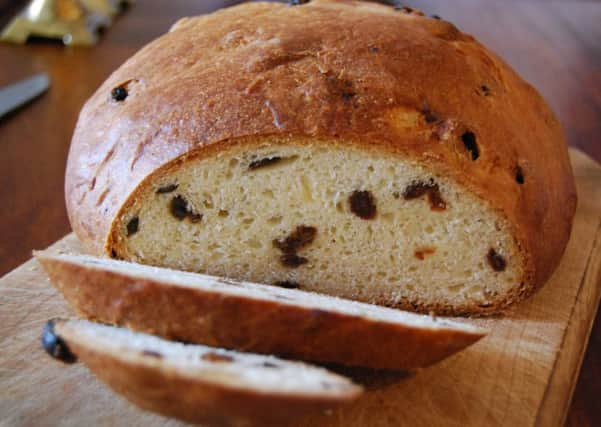Borders council set to crack down on likes of deep-fried Mars Bars and Selkirk bannocks


As part of a Scottish Government consultation, the local authority has indicated to Holyrood that its trading standards officers could potentially take on a larger role policing the selling and marketing of high-fat, high-sugar and high-salt foods.
In July 2018, ministers at Holyrood produced a paper setting out the foods they feel need to be targeted in order to reduce the caloric intake and weight of Scots.
Advertisement
Hide AdAdvertisement
Hide AdThese include confectionery, sweet biscuits, crisps, savoury snacks, cakes, pastries, puddings and soft drinks with added sugar.
The consultation asks if local authorities agree with this list and whether more items should be added.
The council’s consultation response, drafted by Keith Allan of NHS Borders, states that the authority believes ice-cream, ready meals and dairy desserts should also be included in the crackdown, explaining: “While it will certainly be useful to target the discretionary foods listed above, there is also a need to include drinks high in sugar, salt, fat or calories irrespective of whether or not this is added.
“Similarly, ice-cream and dairy desserts should also come under the scope of the new policy as they are often high in fat and high in sugar and do not form an essential dietary component.
Advertisement
Hide AdAdvertisement
Hide Ad“While dairy-based desserts could offer some benefits in terms of calcium and other nutrients, these would be available from other sources in a healthy diet.
“Their benefit in a dairy-based dessert would be offset by the high-energy density and presence of salts, sugars and fats.”
At a full meeting of the council today, January 31, councillors voted in favour of approving the officer’s draft response despite criticism and concerns from some councillors.
East Berwickshire councillor Helen Laing, a health worker, was strongly in favour of the consultation response, saying: “I have worked in the adult health service my entire adult life, and I have seen first hand the impact on people’s wellbeing of poor diet and the suffering it causes.
Advertisement
Hide AdAdvertisement
Hide Ad“In my current role, there is barely a day that goes by without discussing with a parent or carer the impact of sugar in their children’s food, but, let’s face it, fat, salt and sugar make thing taste nice, and it’s easy to fall into the trap of overindulgence.
“That’s okay every now and again, but regular overindulgence of fat, sugar and salt leads to grave consequences, such as tooth decay, heart disease, diabetes and cancer.
“Obesity, including childhood obesity, is fast becoming the epidemic of our age.
“Many of us are blissfully unaware just how much salt, sugar and fat is in the foods we buy.
Advertisement
Hide AdAdvertisement
Hide Ad“Big companies which produce, promote and retail these products are in it to maximise profits. They have at their disposal expensive advertising and marketing which hugely influence our choices and purchasing habits.”
However, Galashiels councillor Harry Scott felt the proposals amounted to unwelcome government meddling with personal choice, saying: “I’m not in agreement with any of the proposals in this paper. I appreciate the problem, but this is typical nanny state, dictating to us how we should live our lives.
“It will cause unnecessary restrictions on business, specialist retailers will find it hard to market themselves, and I doubt very much whether it will have any impact on the groups it is targeting.
“Whilst I’m very much in favour of labelling food to make clearer to the consumers what’s in it, in principle I am against compulsion. People have to take responsibility for their own lives and lifestyle choices, and as long as you keep within the law, the state should have no place in telling you what you can eat or drink.”
Advertisement
Hide AdAdvertisement
Hide AdA motion put forward by Mr Scott called for the response to be completely rejected, but it was not supported by his fellow councillors.
Instead, they opted to vote to submit the consultation response in full, albeit as a council officer response not as a political response.
According to NHS Health Scotland, in 2016, 29% of Scotland’s children were at risk of becoming overweight and 14% were at risk of becoming obese. That same year, 65% of adults were overweight, almost half of them being classed as obese.
The NHS says that some of the health risks of being overweight include an increased chance of developing type-two diabetes and a greater risk of heart disease, stroke and some cancers.